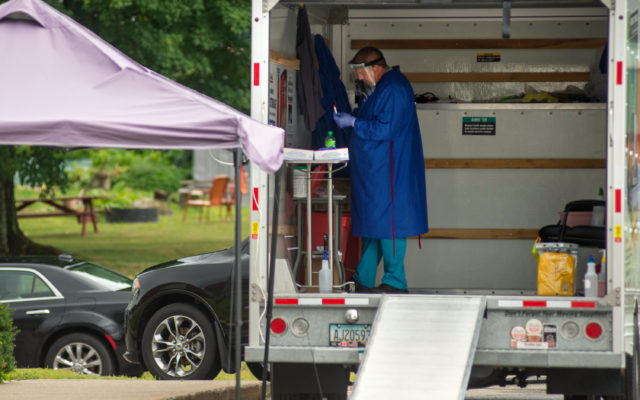
Maine extends COVID-19 testing to all who think they need it
All people in Maine who think they need a coronavirus test are now eligible for one under a state order meant to increase access to tests.
All Maine people at least 1 year old can now seek a test without a doctor’s order under an expansion of the state’s so-called standing order that was announced Tuesday.
Previously, the state limited testing without a doctor’s order to those with known exposure to the virus, health care workers and residents of congregate living settings such as nursing homes, and other high-risk groups, whether they had symptoms or didn’t.
The latest expansion of the state’s so-called standing order opens up testing eligibility to anyone. The state will cover the costs of testing done at one of the state’s 27 swab-and-send test collection sites that send samples to the state lab in Augusta for processing.
The expansion is a result of state efforts to increase testing capacity in recent months. Maine’s testing rate — about 400 tests daily for every 100,000 residents — is seventh highest in the nation, according to the New York Times. Maine is one of 14 states considered to be conducting enough tests to mitigate the spread of the coronavirus, based on a methodology developed by researchers at the Harvard Global Health Institute.
While the standing order now allows anyone to seek a test without a doctor’s order, the Maine Department of Health and Human Services still encourages people to consult their doctors if possible before getting tested.
“While more people can now get tested under the revised standing order, not everyone should get tested,” Health and Human Services Commissioner Jeanne Lambrew said. “Testing alone is not prevention. A negative test does not necessarily mean it’s safe to gather with others. The best way to prevent spread is to practice physical distancing, good hygiene and to wear face coverings.”
While Maine’s previous order that allowed a number of categories of people to be tested took effect in June, not all health care providers were able to offer testing to all groups the order covered. Supply shortages limited the number of test samples they could collect and caused some health care providers to reserve testing only for those in higher-risk categories. That was before an expansion of testing capacity at the state lab.
Lambrew noted that health care providers aren’t required to test everyone who’s eligible for a test under the state’s testing order, and that testing should be prioritized for those with symptoms and those at higher risk of contracting COVID-19.
“We trust people in Maine to be discreet and use their judgment when they go to get a test,” she said.